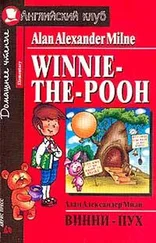“Well, I must hang up — it’s long distance.”
“When will you be back?”
“In time for school. I’ll see you in the theater Monday.”
“Say hello to Carol, will you?”
School. For Raul, an important time of the year. The question of who was to get Iago for next year’s production of Othello was paramount. What was paramount in the administration’s mind was his making up of work. Unless Raul got rid of some of his incompletes, he would have to go to summer school. In an effort to keep promises, Miller directed Raul to Mr. Alexander. If Raul wanted to get in, he would have to make an appointment.
Raul was wary of a creative writing course, and he felt investigation was needed. Questioning Alec, he got a forceful response. “He’s a brilliant man,” Alec said. “Brilliant. I’ll give you an example of how different he is from other teachers. He said to our class once that there were three beautiful things in life: poetry, love, and grass.”
“I can’t believe it. The middle one sounds too much like a love child. But the last one! In this school! I can’t believe it.”
“So you see what I mean?”
“Yeah, but that doesn’t prove his brilliance.”
Alec spoke on. How the class was unstructured: students read their writings and other students commented on them; of the man’s gentleness and poetic nature; of his brilliance.
Raul’s English teacher, Mr. Bowden, who, while teaching Catcher in the Rye, passed Raul’s poetry around to the class, showed it to Mr. Alexander. Bowden reported back to Raul that Alexander was impressed by it.
“Maybe,” Raul said to Alec about this, “I now have proof of his brilliance.”
It was all very attractive to Raul. An informal class, group, of poets exchanging and discussing their work; and, despite his sarcasm, it seemed that he had the security of knowing that Alexander respected his talents.
Among the senior class there were no limits to the deference shown to this man. In his presence, one faced all that was immortal and poetic in this world. His room was hushed from the burden of his compassion for all of man’s sufferings.
“He sounds a lot like Beckett,” Raul commented to Alec. All this made the prospect of seeing him awesome. Raul decided he would put it off for a month or so.
And then Henderson resigned. He had been asked to serve, he explained to the students, in a manner that seemed false. It was preventing him from having what he both wished and felt necessary: greater contact with the student body.
The school was in an uproar. Over eighty per cent of the student body signed a petition to the trustees asking them to retain Henderson. It was clear, the petition read, that pressure had been put on Henderson to resign; it asked that such pressure be alleviated.
A representative group of students went down to the Board itself to present their views. In a week, the trustees and Henderson had come to an understanding. He was to remain, and another man would act for him in those duties that conflicted with his function at the school. Students breathed a sigh of relief.
Raul, after it was over, surprised Alec by saying, “It was a power play.”
“You mean you think Henderson isn’t sincere?”
“No, no. You have such a limited view of human affairs. I think Henderson got some sort of an ultimatum from the trustees. In order to show them the extent of his influence, he jumped the gun. Henderson knew the student response would be forceful, and he knew such a response would get him what he wanted much more quickly than any other means. He’s sincere, but he’s not averse to the reflected glory.”
“I thought you were an idealist.”
“Not about the bourgeoisie.”
“You’re middle class yourself.”
“So much the more do I understand them.”
“Touché!”
“My problem isn’t that I’m middle class but that I’m a coward.”
“Coward? What about?”
“I know exactly what bullshit this school is, but I’m scared to death of leaving it. My cutting is a half-assed way of doing it. My courage goes only so far as giving the school the initiative of getting me out of here.”
“You keep changing your mind. I thought you wanted to stay.”
Raul sighed. “Yes. I do want to stay.”
Alec, as part of his Senior Project, took on the direction of the second-form play and became the stage manager for Iolanthe. Raul showed up at all the rehearsals and joined the stage crew to work on the production. He and Alec tried to remain inseparable, but it was hopeless to recreate the situation.
With Anita, Alec’s mother, back, Raul went through the process of acceptance. She already credited him with being a remarkable talent in the theater, but Alec, eager to show him off, made Raul show her his poetry.
Impressed, and aware that this was a powerful influence on her son, she tried to feel out this unharnessed intelligence. Raul’s peculiar communism ran up against the usual clichés. Her efforts in the thirties and forties, the progress made with blacks, her friends, and the wanton, superfluous violence of S.D.S. and the Panthers.
Raul began calmly, pointing out that, indeed, the violence of S.D.S. had never exceeded breaking a few windows, at great expense to their skulls. And as for the Panthers, the most they had ever been accused of was killing one of their own members; nothing, when compared to the numbers that died at the hands of the police. In any case, he said, over objections to that, any amount of violence on their part was not only justified but their duty.
There was no turning back after that point, and Raul had little patience when the obvious conclusions he drew from history were questioned. But they didn’t really question his points, they questioned his methods. There must be something better than violence, they would say, we’ve had too much of that. Sweating, upset, and furious, he yelled that it was very simple to oppress and kill a race for hundreds of years and, when they turned an avenging fist, start talking about peaceful solutions. He walked out on both of them, his system in violent disorder.
He hated such talks. To what end was he speaking? He didn’t hope, or believe, he could convince them. All it left behind was a bitterness and anger he didn’t wish for or enjoy. That kind of violent accusation is better left for mass circulation: in speeches, where whole masses are moved to action. How worthless to say it to a fellow actor and his mother. Pointless masturbation.
He was an artist, that was his duty. Politics is a pile of human excrement that, as Joyce put it, his soul would have to fly by. His mind needed to be free, not ensnared by partisan rhetoric.
Anita was redoubly impressed. The more articulate and passionate he proved himself to be, the more dangerous his influence.
Alec and Raul had never disagreed; over politics they fought for the first time. Alec, one night walking the dog with Raul, his parents away for the weekend at their country house, asked Raul to explain an action of S.D.S.’s. Raul disliked the position of having squeamishly to excuse an action; an action, not a revolutionary act, just a seizure of a building. To explain required wading through the quagmire of rhetoric. More angry at the words he had to choose, Raul bullied Alec.
“Don’t try and convert me,” Alec said angrily.
They separated not speaking to each other. Raul went home. He was amazed. Where had that comment come from? He had never spoken to Alec about politics before Alec’s mother came home. That was the answer. Suddenly he found himself in a position that Alec’s mother had defined for him. In a minute or so he called Alec.
“I was going to call you,” Alec said.
Читать дальше











